Happy New Year! And welcome to our annual year-end roundup of the brightest, boldest ways the world improved, evolved or otherwise changed for the better. It’s a randomized bingo-ball tumbler of a list, pulled straight from the pages of RTBC, and we hope it brings you some cheer as we leap into 2023 together. Let’s go!
(Note: Some of these items link to “Fixer” columns, which contain multiple stories. In those cases, you may need to scroll down a bit to find the story you’re looking for.)
A nonprofit has purchased $6.7 billion in medical debt — and forgiven it all.
Nine US cities now have the capacity to generate 3.5 gigawatts of solar power, more than the entire country did just a decade ago.
Just four babies have tested positive for HIV in Botswana this year, a country that’s on track to eliminate mother-to-child transmission.
60 unhoused people in Germany found a permanent home through an initiative that converts proceeds from art sales into affordable housing.
After 428,000 people passed an anti-gerrymandering initiative in Michigan, the state held its fairest elections in decades.

The nest of a titipounamu was found in Wellington, New Zealand after the native bird species hadn’t been seen in the city for over 100 years.
14 cognitively impaired individuals who listened to their favorite playlist every day for three weeks showed a statistically significant improvement in memory.
From 1993 to 2019, child poverty in the US fell by 59%.
The number of endangered monarch butterflies found in Mexican forests rose by 35% from the year before.
Every large parking lot in France will soon be covered in solar panels, generating green energy equivalent to running 10 nuclear reactors.
Crashes involving pedestrians decreased by 50% in places where busy intersections were redesigned with stunning pavement murals.
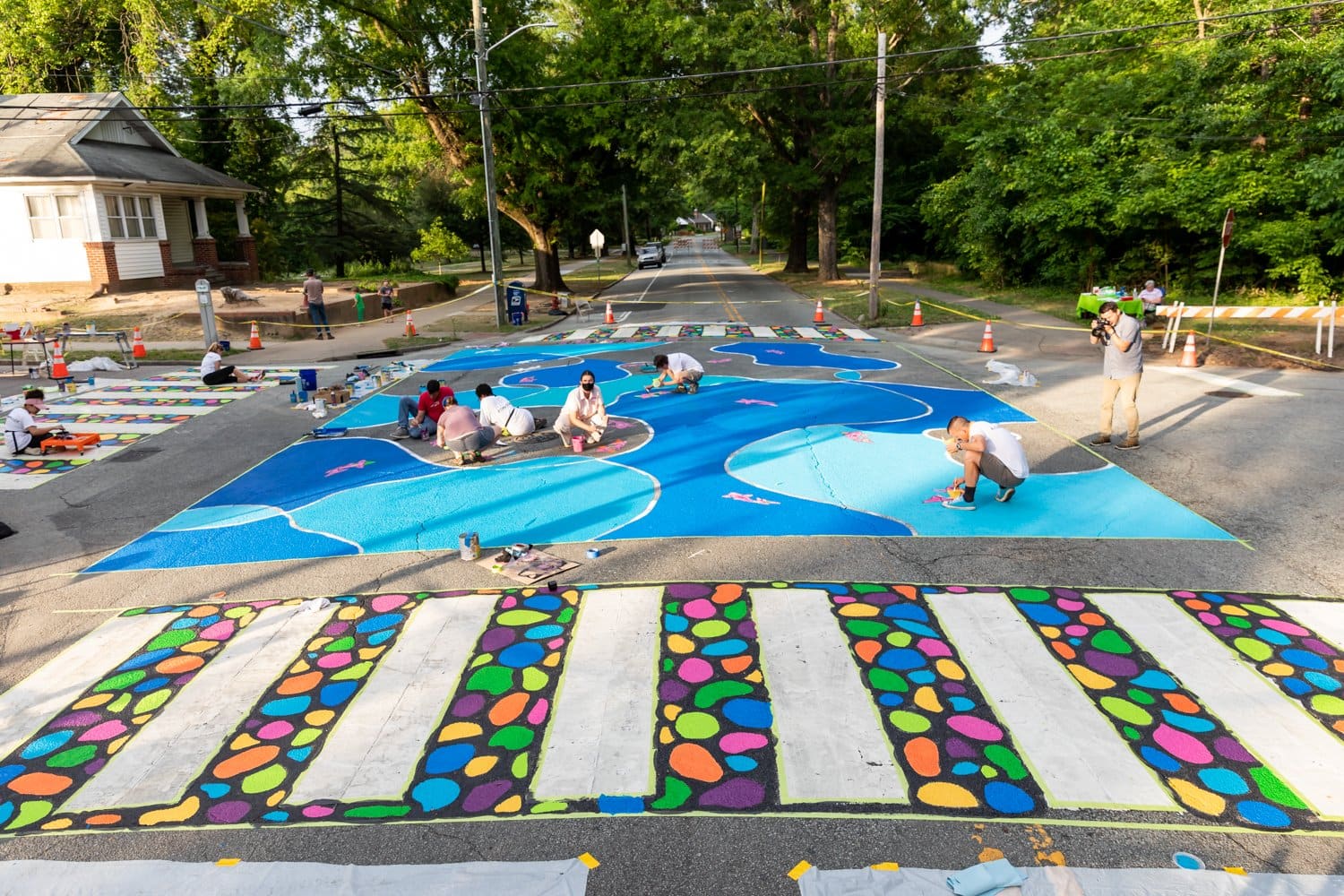
In 2020, Hawaii banned coal power entirely. Now its last coal plant has closed for good.
A study analyzed 72 million Facebook relationships and found that friendships between rich and poor are a highly effective way to reduce poverty.
Tilos, a tiny island, recycles up to 86% of its trash, a record high in Greece — and now its landfill is shut.
Tuition costs are expected to fall at around 100 US universities.
In the middle of the pandemic, Alexandria, Virginia, made its bus system free. It’s still free today — and back at 95% of pre-pandemic ridership.
500 tons of compostable materials are collected from San Francisco each day, helping to divert some 80% of the city’s waste from landfills.
In the Netherlands, where any woman who needs one can legally have a safe abortion until 24 weeks after conception, just eight out of 1,000 pregnancies are terminated — one of the lowest rates in the world.
When given to male mice for four weeks, a birth control pill for men was 99% effective in preventing pregnancy without any observable side effects.
Norway is developing a heat pump that could allow one fifth of all European industry to cut its energy use by 70%.
Nearly two thirds of Stuttgart, Germany — a total of 207 square kilometers, inhabited by more than 630,000 people — is green space, and nearly half of that is forest.
In the first half of 2022, solar and wind power made up 67% of newly added electrical capacity in the US.
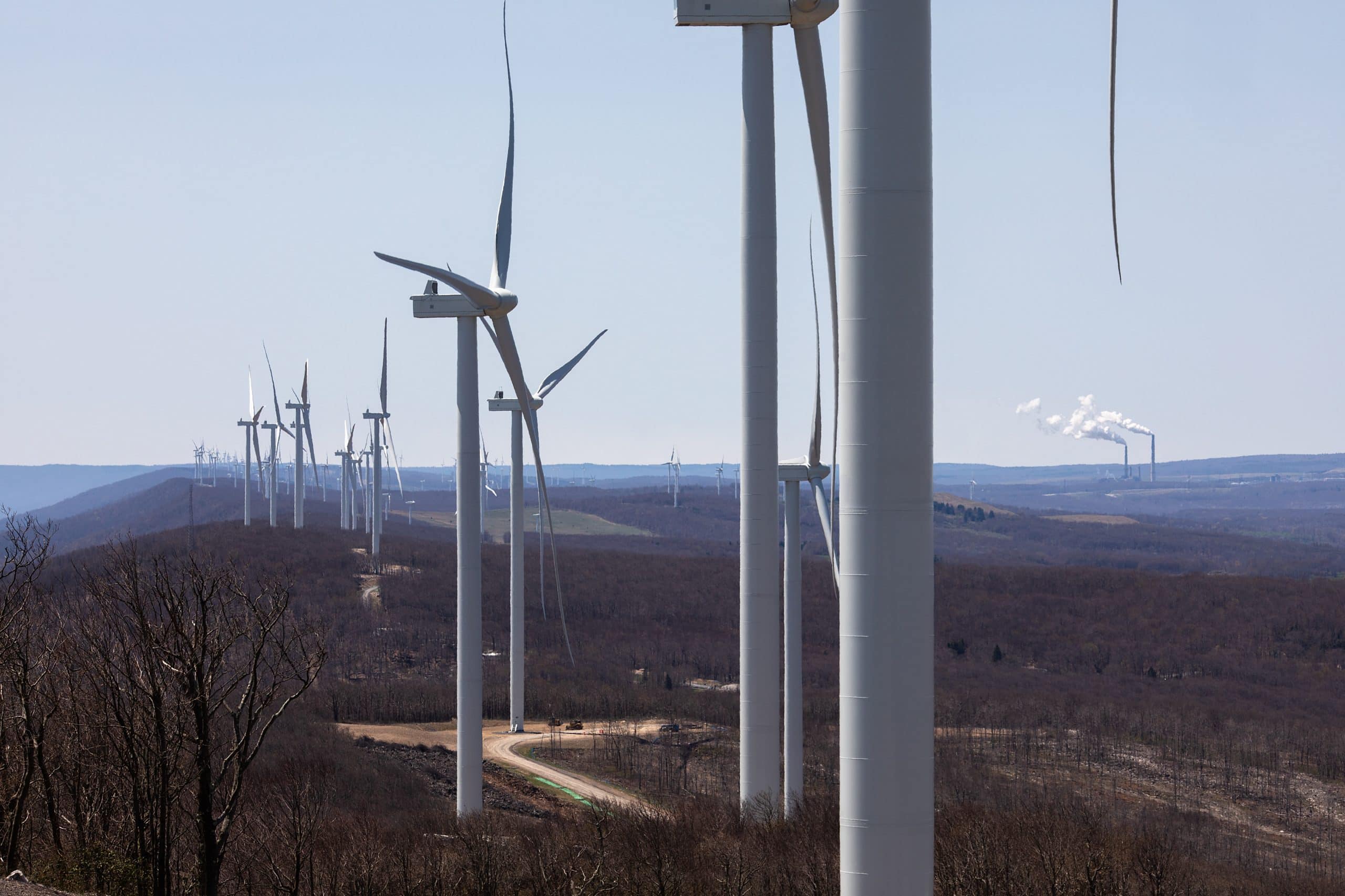
By the start of 2021, women served in over one-quarter of all professional roles in Major League Baseball.
Sweden sends just 1% of its trash to landfills. The rest is recycled or converted into energy.
Zimbabwe’s first all-women anti-poaching unit has made more than 300 arrests without firing a shot, and is partially credited with the Zambezi Valley’s 80% decrease in elephant poaching since 2017.
Many Parisian buildings are cooled by an 89 kilometer network of underground pipes filled with chilly water from the Seine.
Kansas City made its public transportation free three years ago. Now, almost 90% of riders say they ride the bus more than they used to.
Emissions-free energy sources provided 38 percent of global power in 2021, more than coal for the first time ever.
A European bison was born in the wild in the United Kingdom for the first time in thousands of years.
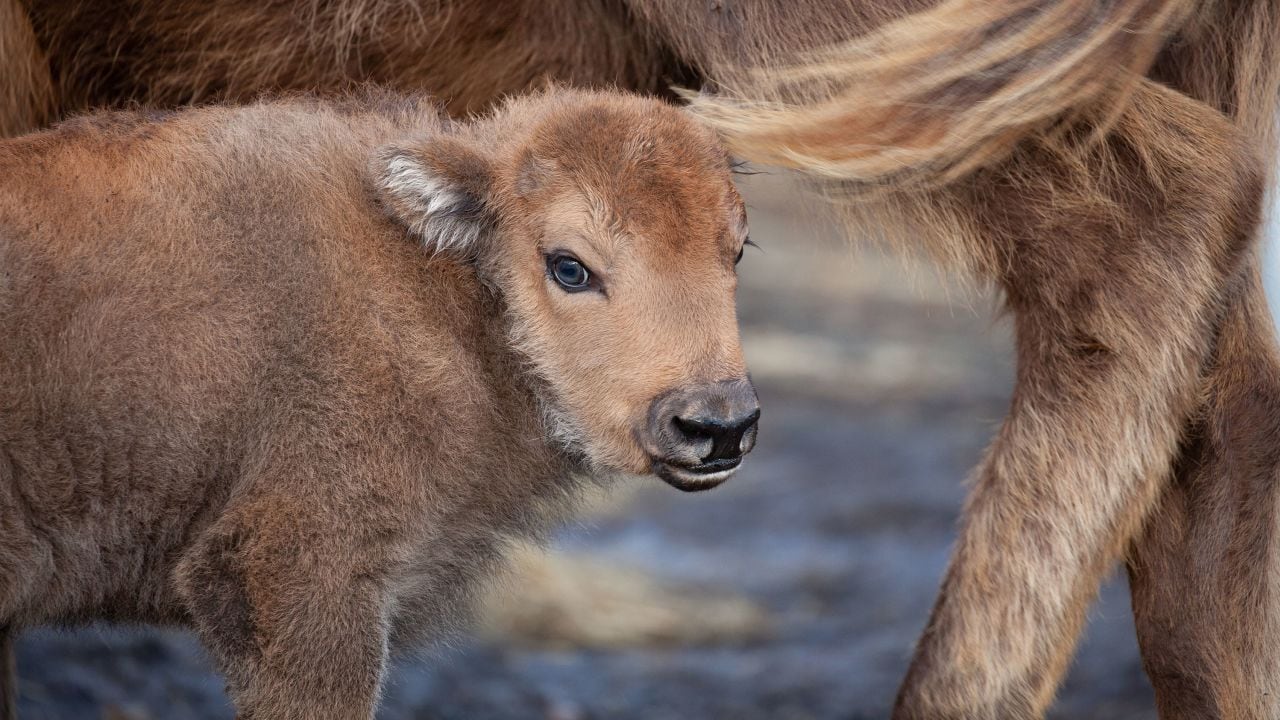
A new analysis shows that business boomed at restaurants and bars on the 83 miles of streets New York City closed to traffic due to Covid.
850 tons of CO2 emissions were saved in Austria thanks to a program that encourages citizens to repair their broken items instead of replacing them.
Six cities have appointed Heat Officers to fight extreme temperatures. More plan to follow suit.
Israel announced it would plant 450,000 urban trees by 2040.
Weighed down by negative news?
Our smart, bright, weekly newsletter is the uplift you’ve been looking for.Apps are reducing food waste in Denmark — one of them has saved more than 11 million “meals” in the past six years.
If everyone in the world rode bicycles as much as the Dutch do, annual global emissions would fall by nearly 700 million metric tons.
30 countries are members of Promote Pollinators, a coalition to share knowledge about protecting and conserving pollinating insects.
The New York Public Library is giving away 500,000 books to help families build their home libraries and “strengthen the city’s ecosystem of learning.”
200,000 slum dwellings in Kolkata that have never had addresses are now officially addressed.
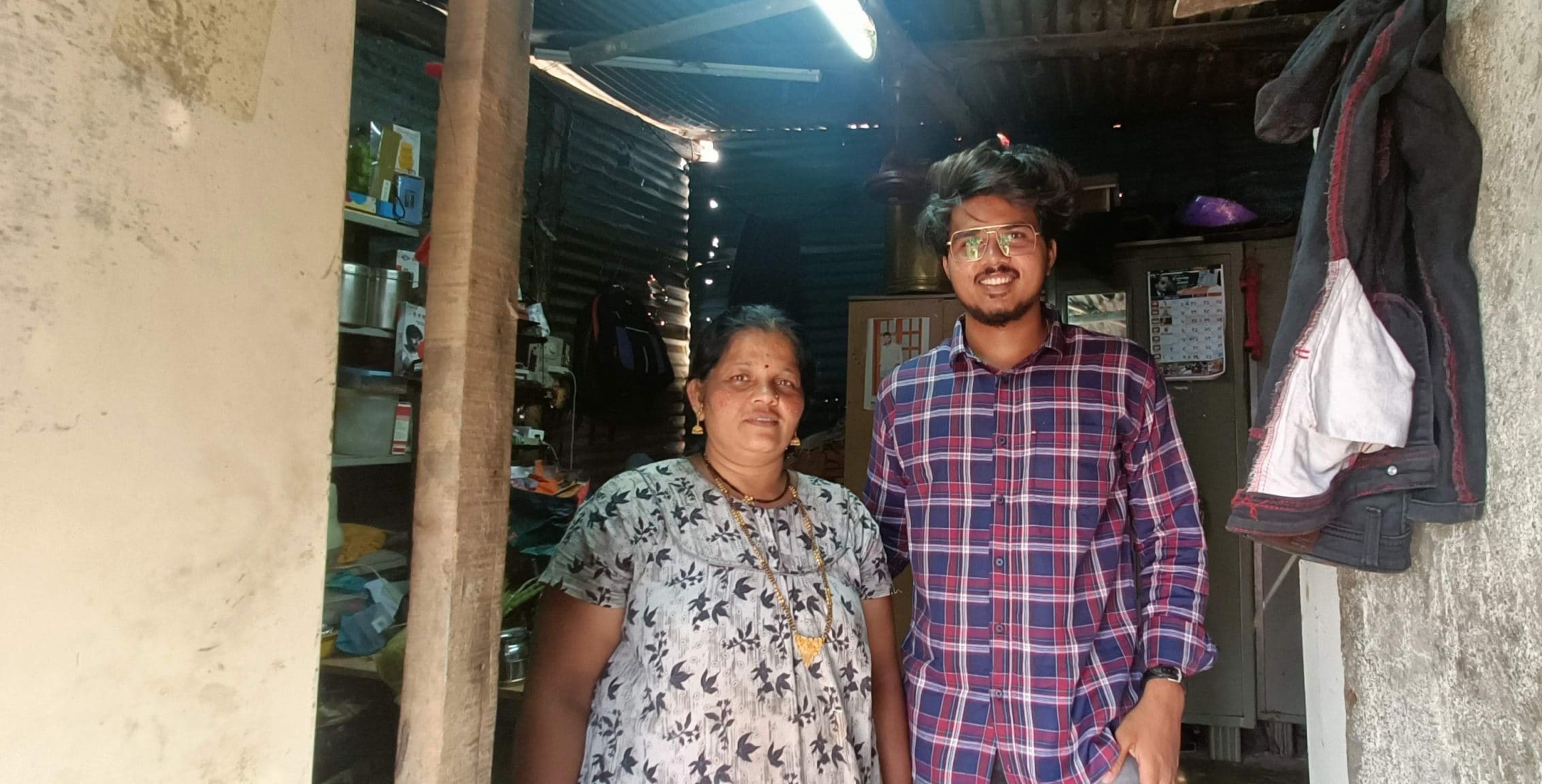
The hides of lionfish, an invasive species, are being used to make jackets — each lionfish hunt can save up to 70,000 native fish.
More than 69 million sockeye salmon passed through Bristol Bay, Alaska last year — the largest sockeye run there since tracking began in 1893.
47 medical schools in the U.S. have incorporated best practices and educational trainings developed by Columbia University for teaching climate change.
In Iowa, a group is working to reintroduce native species like wolves and bison in a state that was once 80% wild prairie.
An experiment to see if juvenile salmon could grow in flooded rice plains was a huge success — up to 80% of the fish survived over the course of a month.
59 students and their families found a safe place to sleep thanks to the Stay Over Program at San Francisco’s Buena Vista Horace Mann public school.
The world’s first train line powered entirely by hydrogen began service in Germany.
By connecting groups of 10 or 12 cyclists, an app is making commuting by bicycle safer in L.A.
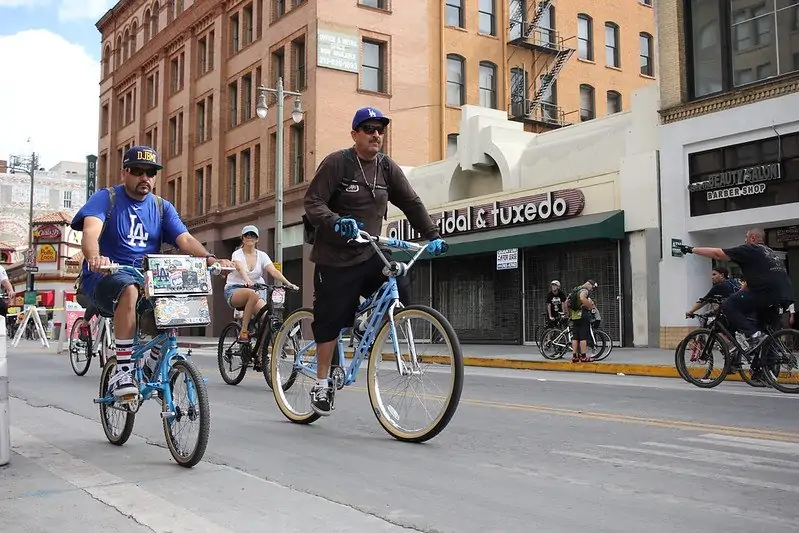
30 people with albinism are fighting skin-condition stigma as players in Kenya’s Black Albinism Football Club, which draws large crowds to its matches.
57% of the power generated in Iowa last year came from wind.
In a Seattle river, a 15-foot stretch of restored microbes reduced 78% of the water’s pollutants by at least half.
Melalogic’s Black Skin Resource Center shows users 14 different issues that affect skins in melanated tones, searchable by keywords.
A large study found only 4% of respondents had “negative” or “very negative” feelings about wind farms on or close to their homes.
California’s cap-and-trade program collected more than $2 billion from polluters in 2021 alone, and cities are using that money to keep residents from being displaced.
Greensburg, Kansas, runs on 100% wind energy that comes from a 10-turbine wind farm outside of town.
Five bodies of water are suing the State of Florida, making the unprecedented argument that nature has legal rights, too.
One man has secured pledges from 74 countries to preserve their soil through more sustainable farming.
The US climate bill helps landowners with 30 acres or more access the carbon market, giving them a new opportunity to earn money by saving their trees.
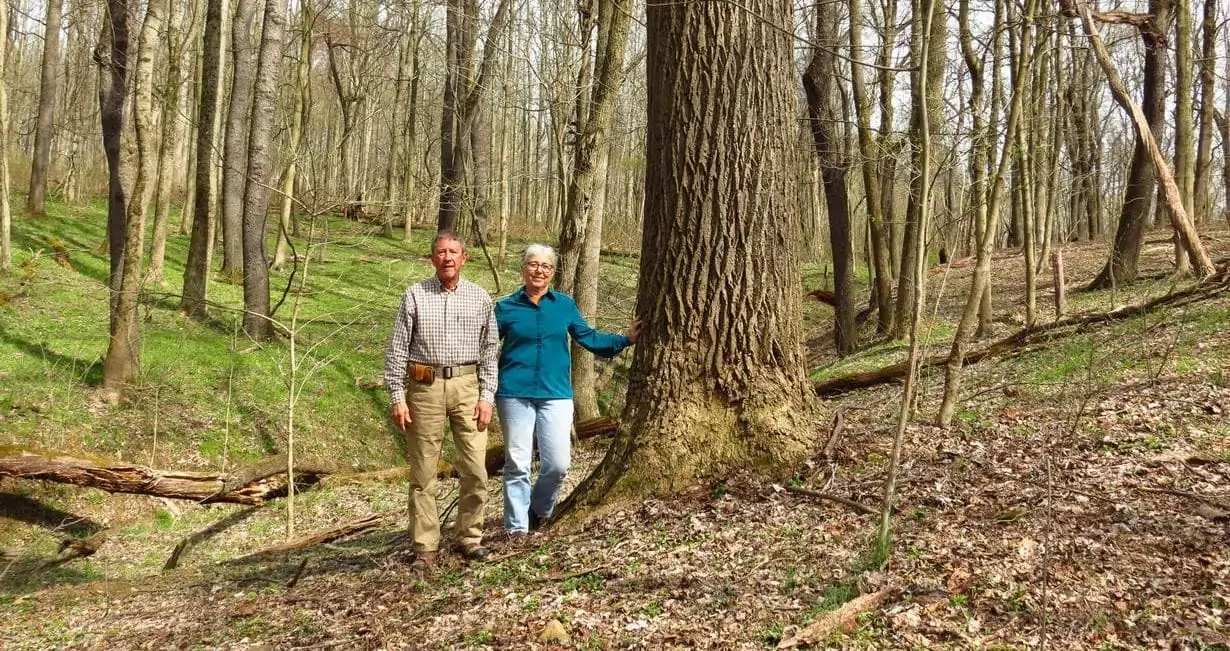
171 German “bioenergy villages” are getting at least 50% of their energy from renewable sources.
Black residents of Evanston, Illinois, whose descendants experienced housing discrimination can receive $25,000.
An analysis of 127,000 resumés found that people without a college degree actually earned higher salaries than those with a college degree in fields like IT, construction safety and chemistry.
900,000 children have been inoculated against polio in Nigeria, thanks to a strategy that works closely with traditional leaders.
An emergency hotline for parents of infants during natural disasters has helped 60 Louisiana parents make sure their children are safe.
Between 2007 and 2017, the number of farms in Alaska increased by 44% even as the total number of U.S. farms dropped by more than 7%.
Gothenburg, Sweden has a plan to pour $1.1 billion into six of the city’s most vulnerable neighborhoods over the next three years, improving quality of life for some 84,000 residents.
In the French city of Toulouse, 1,140 pupils that went to poorly performing schools are now enrolled in wealthier school districts, leading to higher grades and lower dropout rates.

13 hospitals in cities all over Ukraine have received more than two dozen portable solar battery systems that can produce and store energy independently.
A Kansas City nonprofit that cleans up dump sites by planting orchards and gardens has spread to ten other cities and planted some 330 orchards.
US states passed roughly 400 bills to reduce carbon emissions between 2015 and 2020 — and 28% of them were passed by Republican-controlled legislatures.
200 rare Pinzgau goats have been born at a Vienna landfill designed to support biodiversity.
The eco-friendly land-based salmon farming industry grew by 35% last year.
Floating solar farms produced 68 megawatts of green energy in 2015. Today they produce 5,000 megawatts — a number expected to quadruple by 2027.
Kamikatsu recycles 81% of its waste, compared to the Japanese average of 20%. Now it’s spreading its policies to other small cities nationwide.
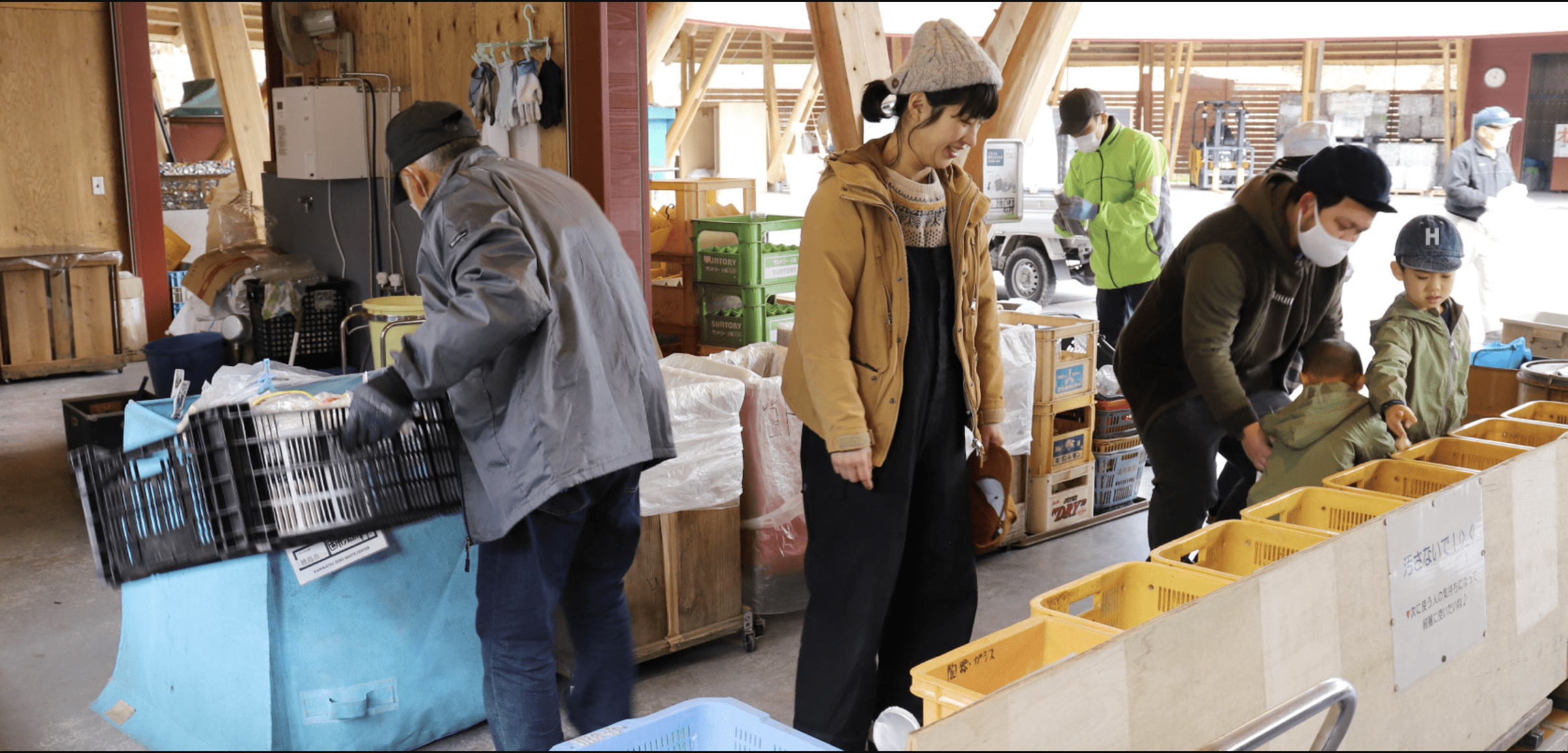
Three US states allow people to add their names to their state’s background check system to prevent themselves from impulsively purchasing a gun.
Around $20 billion in cap-and-trade funds are available to finance environmentally beneficial investments for the most polluted communities across California.
A coalition of cities in the American West are working towards the removal of 2,500 metric tons of CO2 from the atmosphere.
One hectare of hempcrete can capture between 8 to 15 metric tons of CO2.
Hundreds of thousands of new moms in Kenya are getting free online help with breastfeeding.
More than 1,200 kids bike 90-plus routes to more than 70 schools across 25 cities in Catalonia thanks to the Bicibús program.
A list of farms and zoos that sustainably dispose of Halloween pumpkins (by feeding them to their animals) has almost 400 entries.
At least five countries have organizations that help stressed out parents.
Almost half a million avocados were saved from landfills by 10,000 people in Philadelphia.
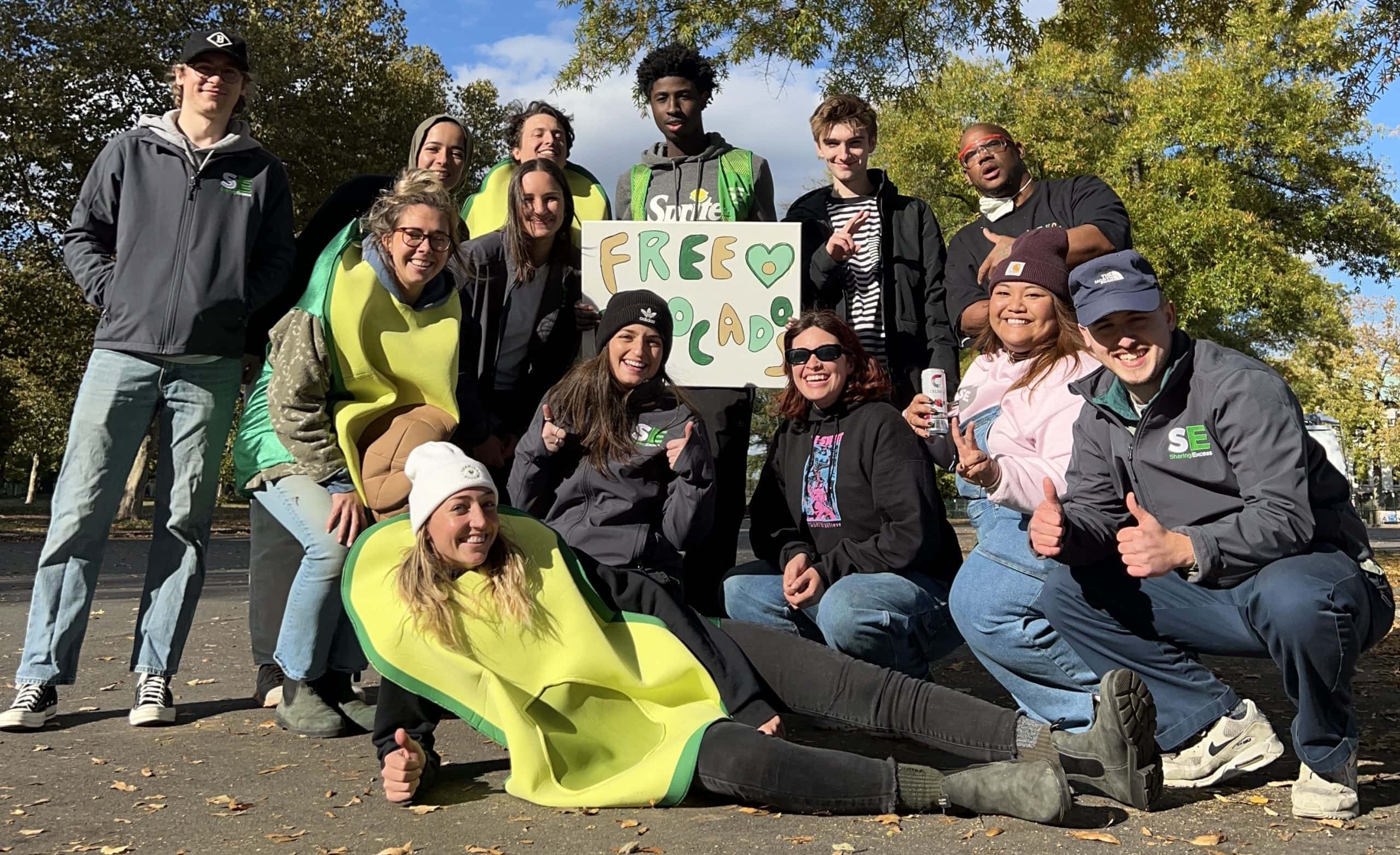
A library program that lends books and bikes has had 279 checkouts.
Projects designed to treat wastewater for drinking purposes have quadrupled since 2000.
People in L.A. that can afford move-in costs can borrow up to $2,500 to pay the security deposit and pay it back in three years.
Hundreds of prisoners have cultivated 500,000 sagebrush plants, helping to restore a threatened species in wildfire-scarred regions.
More than 360 schools in the UK are designated Schools of Sanctuary, meaning they provide a welcoming and inclusive learning environment for refugees.
A trial of a very affordable monthly transit pass in Germany convinced 10 million additional people to take buses and trains instead of drive.
With 10 pigs, 10 sheep, four goats and 50 egg-laying birds, one UK farm is training people with disabilities to join the agriculture sector.
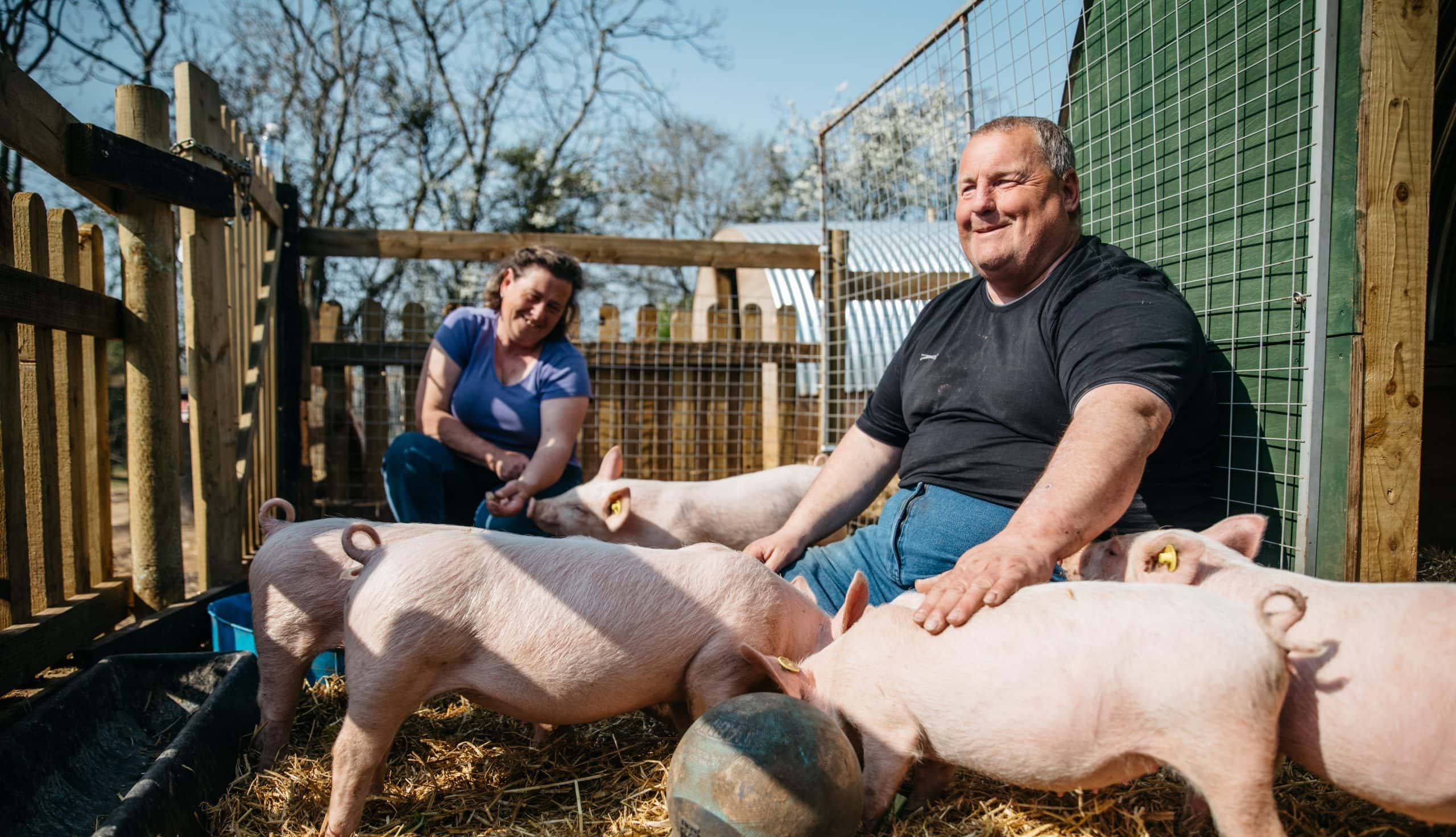
48 percent of all electricity generated in Kenya came from geothermal — the highest share of any country.
4,500 Venezuelans have found good-paying stable jobs thanks to an online platform.
Tree seedlings planted in barren ground by millions of volunteers two decades ago led to a 22% increase in Nepal’s forest cover since 1988.
The number of community land trusts in the US doubled between 2003 and 2017.
A group of 67,000 sex workers in West Bengal helps retired sex workers find ways to start their life anew.
Seaweed aquaculture could absorb nearly 240 million tons of CO2 by 2050, equal to the annual emissions from more than 50 million fossil fuel–powered cars.
A helpline for abusers who want to stop their harmful behavior receives more than 6,000 calls a year.
German kids will receive a €200 “culture pass” gift for their 18th birthdays.
400 visitors have been connected to housing programs, food assistance and substance abuse recovery options by the “peer navigators” of Baltimore’s public library system.
In a French village, more than 100 residents with Alzheimer’s live across 17 acres designed like a small neighborhood, and are encouraged to roam and live a normal life.
A company helping former tour guides in Timbuktu has sent over 7,000 postcards from all over the world.
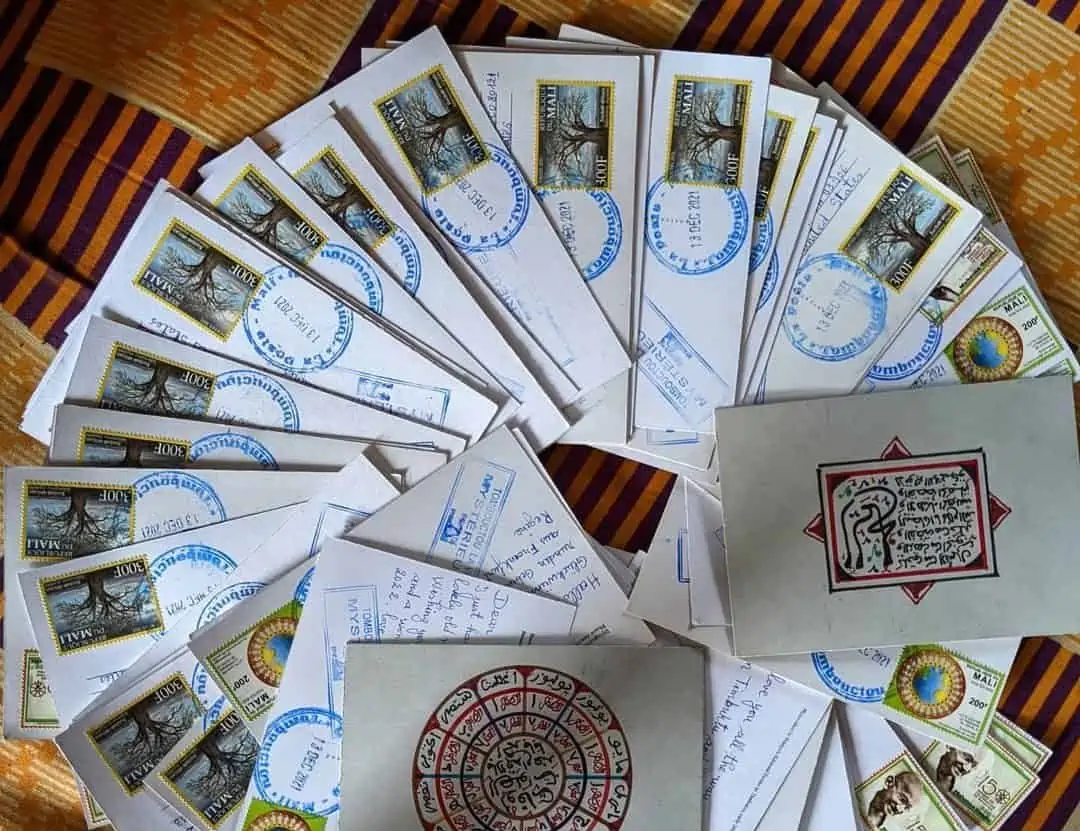
More than 10% of the UK’s electricity now comes from offshore wind farms.
A Chicago nonprofit delivers food to 375 homes per week, feeding 2,000 people in 23 neighborhoods with 15,000 pounds of fresh produce per month.
The Frozen Zoo in San Diego has living cells of over 12,500 species, which could safeguard them from extinction.
Four cities that closed streets to traffic at the height of the pandemic have made those changes permanent.
A Swedish processing plant can convert 120,000 metric tons of cotton waste into usable fabric, a big step toward mainstream clothing recycling.
Denver will get 300 miles of new sidewalks thanks to a huge investment in pedestrian-friendly infrastructure.
5,000 pounds of textile waste have been converted into new clothing items by women refugees earning a fair wage.
Sales of second-hand technology are booming in the UK, with about 70% of adults planning to spend less on gifts this year.
The Inflation Reduction Act set aside $27 billion to create a national green bank that will fund local green infrastructure projects nationwide.
A UK program that helps employees buy tax-free bikes so they can commute more sustainably has been used by more than 1.6 million workers.
Two-thirds of organizations say they feel pressure from their own employees to implement more policies that counteract climate change.
Surfers and conservationists in Mexico protected 67 hectares of oceanfront with the goal of preserving its waves.
A Texas rural school district has attracted top-notch faculty by offering them housing for $250 per month.
In 1988, wild poliovirus paralyzed hundreds of children every day. Since then, cases have plummeted 99.9%.
39 underwater sculptures now adorn the seabed off the coast of Tuscany, blocking illegal fishing and creating an artful habitat for marine life.
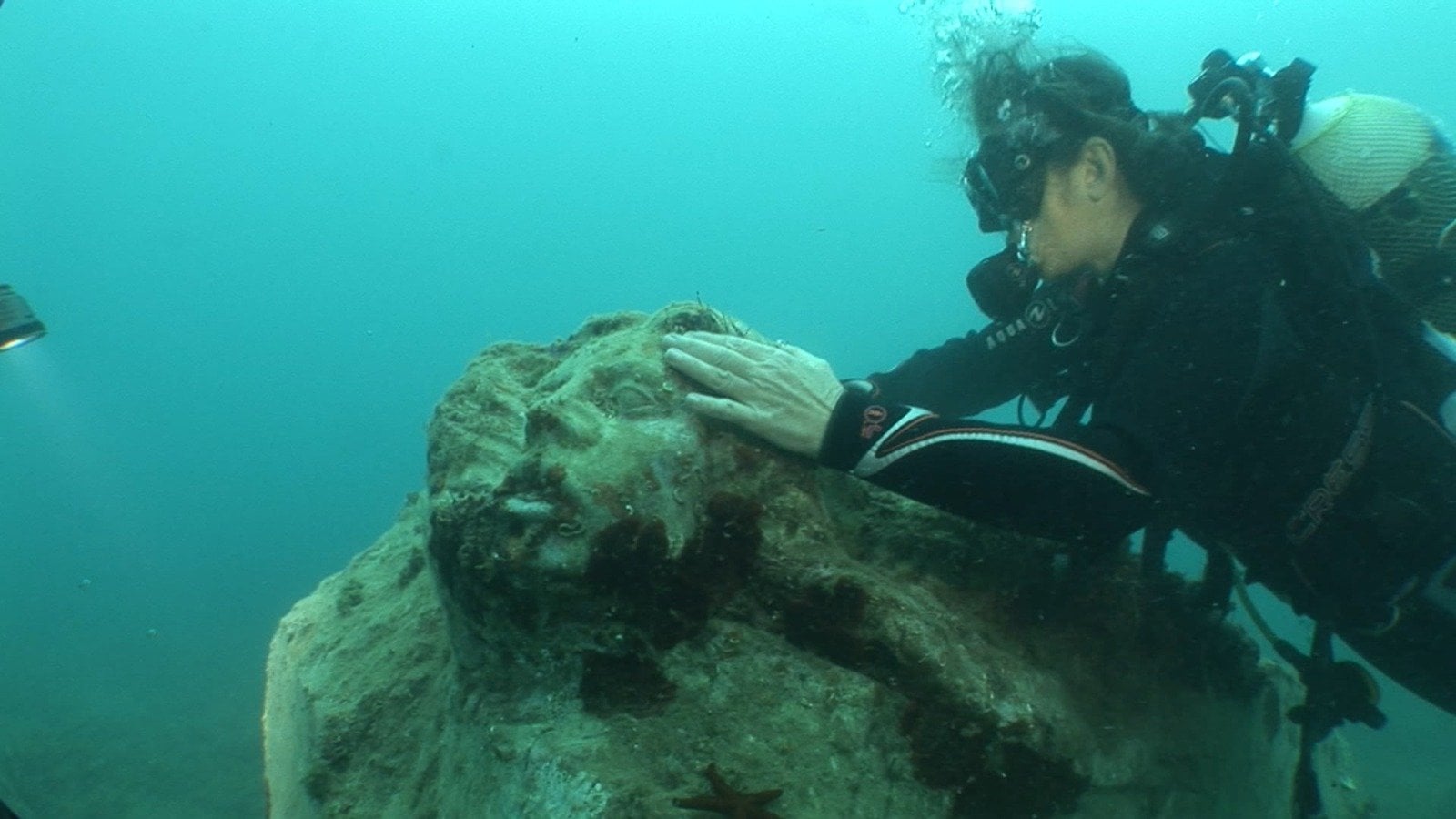
One-third of the world’s renewable power is in China. Now, that country wants to increase its capacity to 1,200 gigawatts by 2030 — more than the entire current global total.
When a small electrical current is passed through seawater, it causes coral reefs to grow five centimeters per year — up to ten times faster than coral grows naturally.
Since 1990, the proportion of journeys by car in Paris has dropped about 45% and use of public transit has risen by 30%.
A company that upcycles chopsticks into furniture has saved more than 70 million of them from landfills.
As Delhi electrifies its fleet of public buses, it is projected to save 1,300 lives annually due to decreased air pollution.
A 50-kilometers stretch of the Netherlands’ Meuse River is part of a radical rewilding project.
More than 121 million observations have been posted on the app iNaturalist by nature lovers — and more than 66 million of these were classified by scientists as “research-grade.”
In a survey of 380 people, roughly half decided to fly less in response to knowing someone who had gone “flight-free.”
After nearly vanishing in the mid 20th century, there are now over 8,140 farmers markets in the US.
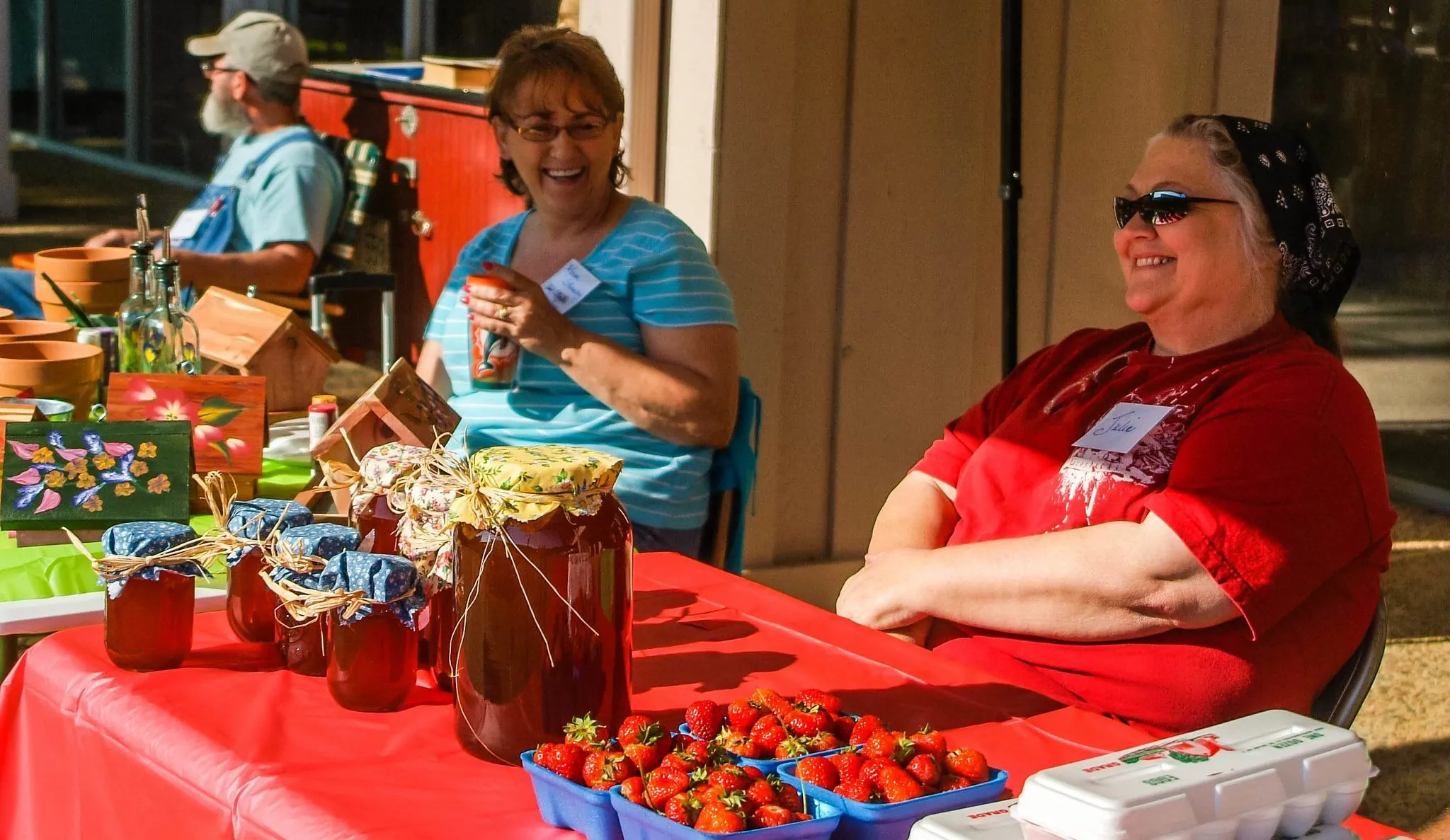
There are zero incarcerated girls in Hawaii’s juvenile detention center.
Europe’s second-hand apparel market is expected to grow twice as fast as its overall apparel market by 2026.
Australia expects renewables to make up 82% of its energy mix by 2030.
The City of Houston has moved 25,000 people off the streets and into affordable housing.
Employees at 70 UK companies began working only 80% of their normal working hours in the biggest four-day work week experiment on record.
When school cafeterias don’t use food trays, they report a 20-30% reduction in food waste.
A nonprofit has reached more than 500 million people with soap operas designed to foster positive behavioral change.
More than 300 arrest warrants have been recalled thanks to volunteers who help sort out misunderstandings regarding missed court dates.
The Inflation Reduction Act allocates $22 billion for “climate-smart farming.”
On a permaculture farm in North Carolina, 31 formerly incarcerated women have started to rebuild their lives in a place where post-prison opportunities are often hard to come by.
India has 88 open prisons that allow prisoners to come and go as they please. In virtually every case, they come back.
The public library in Mystic, Connecticut offers 90 types of seeds that members can “check out” to plant in their yards, gardens and pots.
For 15 minutes on April 30, California ran on 100% renewable energy.
The University of Texas – Rio Grande Valley, with more than 90% hispanic students, ranks among the nation’s top five schools for promoting economic mobility.
7,000 baby crocodiles have been born at a nuclear power plant, helping save the species from extinction.
After nearly vanishing in the 1970s, there are now more than 500 California condors in the US and Mexico.

In November 2020, voters in Orange County, Florida approved a charter amendment to “protect the rights of nature” by nearly 90%.
63% of the 600 low-income students who received a guarantee of zero tuition applied to the University of Michigan.
Seven trees are regenerated for every one that is cut down in Costa Rica.
In London, a building that can be disassembled, flat-packed and relocated is providing space for 12 small businesses to operate affordably.
A Microsoft survey of 31,000 workers in 31 countries found that employees were prioritizing well-being over crushing it in their careers.
An Oregon water treatment plant converts its waste into 4,324 megawatts of green energy, providing about half the facility’s energy usage.
A subscription-based model for food delivery in Lexington, Kentucky is lowering fees for users and paying drivers $20 per hour.
A unique collaboration that allows anyone in Davis, California to get tested for Covid at the local college has resulted in an infection rate that is half the state average.
In medical emergencies where minutes matter, new drones carrying lifesaving equipment can be airborne in 60 seconds.
In Llanarth, Wales, 100,000 dirty diapers have been cleaned, shredded and mixed into asphalt to pave a local road.
In 2021, 83% of Black girls graduated from Memphis public high schools on time — higher than the graduation rate for every other demographic group in the city.
When the Irish government set up a website for people to offer accommodation to Ukrainian refugees, so many hosts signed up on the first day that the website crashed.
Saudi Arabia’s humidity hovers around 40% during the day and 80% at night. Scientists have figured out a way to pull that moisture from thin air to irrigate plants.
To house people experiencing homelessness, Project Homekey has created 7,000 affordable housing units from California hotels and motels.
Since its launch in 2015, the Wohnbrücke Hamburg initiative has supported 3,012 refugees to integrate and find their own homes.
Since its inception in 2005, World Bicycle Relief has given away more than 635,000 bicycles in Zambia, Zimbabwe, Rwanda, Kenya, Malawi, Colombia and Sri Lanka.
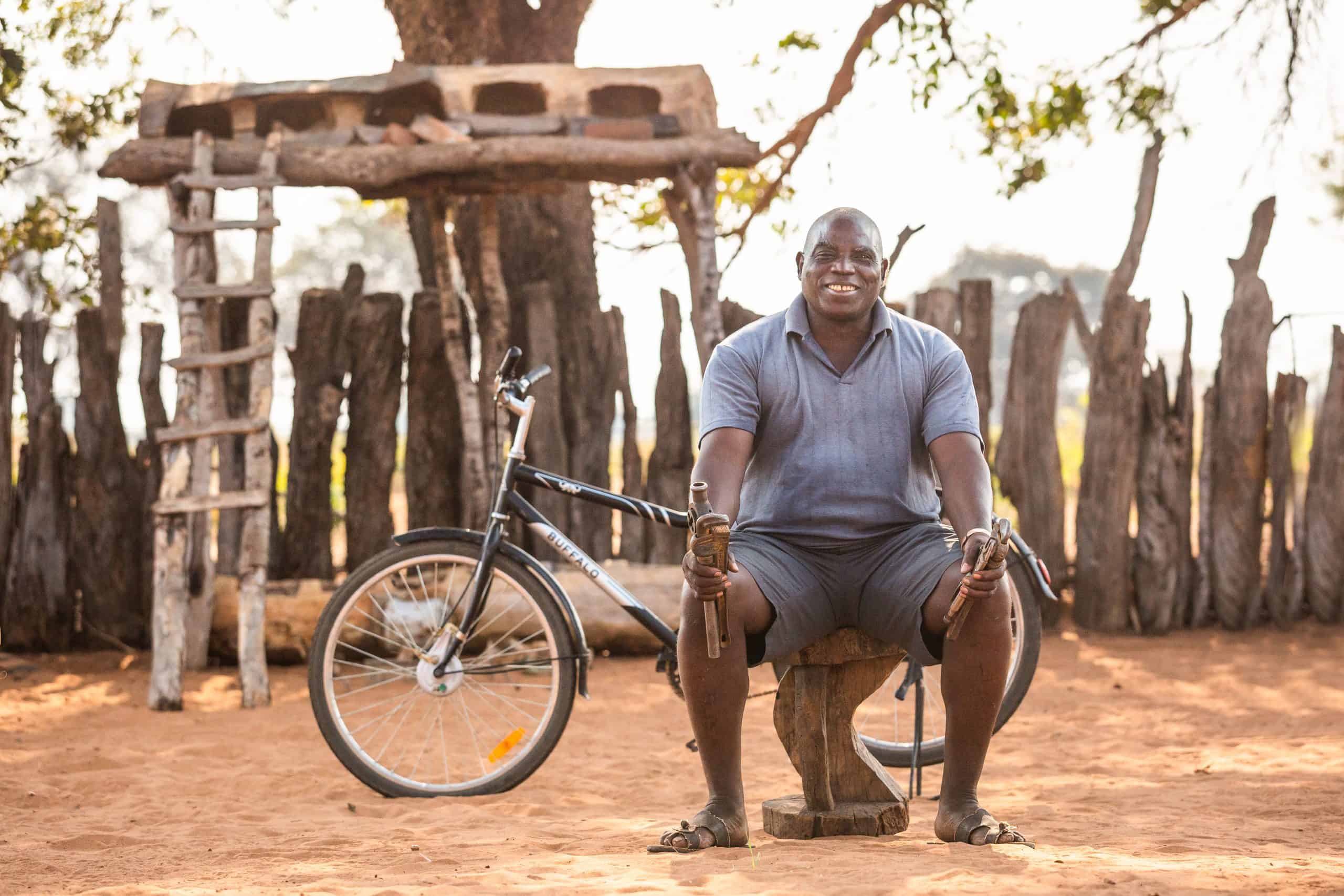
With the creation of over 300 new jobs, a forward-thinking mental health center in Kansas City is keeping patients, employees and jobs within the community where it’s located.
The U.S. and Mexico share the Colorado River’s water supply, but today it provides 1.2 billion cubic meters less water than we can sustainably take from it. A cross-border water exchange could ease the problem.
A pilot project to cover Californian canals with solar panels could eventually expand to save 63 billion gallons of water while generating green energy.
15 primary care practices in Philadelphia have begun screening all young patients for mental health issues during their annual checkups.
Women deliver 60-80% of agricultural output in Sierra Leone, yet are given the worst access to land. A mapping project is changing that.
In the 18th century, people would infect themselves with mild cases of cowpox to avoid getting smallpox – an early example of vaccination.
500 people, including 220 police officers, have participated in Newark’s Trauma to Trust program, where residents and cops work with mediators to learn more about each other’s pain.
In the U.S., over a thousand wildlife crossings help animals navigate the human-built world, allowing them to bypass hazardous infrastructure like highways, train tracks and aqueducts.
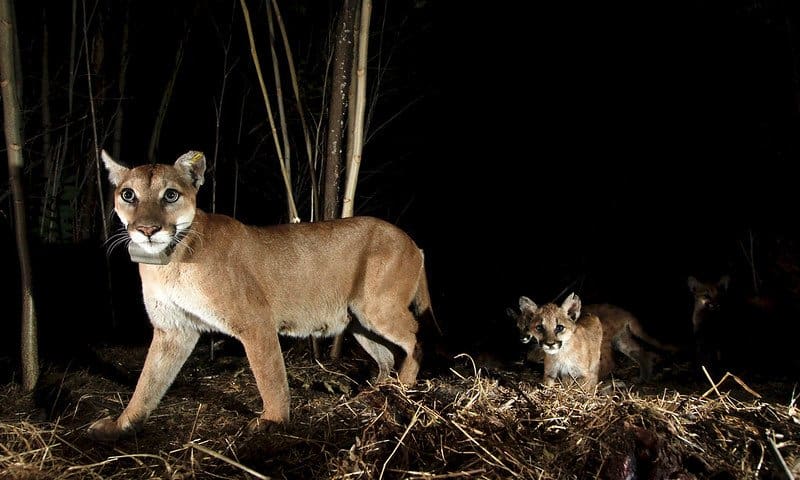
This year, after decades of activism, South Africa’s minimum wage for domestic workers will rise to the level of the national minimum wage, a 20% increase.
As of this month, physicians in four Canadian provinces — British Columbia, Ontario, Saskatchewan and Manitoba — can prescribe free passes to national parks for their patients.
62% of Sweden’s litter comes from discarded cigarette butts. Now a startup is training crows to pick them up and throw them away in exchange for treats.
Water will soon flow naturally through parts of the Everglades for the first time in decades, thanks to an unprecedented $1.1 billion restoration project.
In South Bend, Indiana, a network of 200 micro-scale developers now collectively makes up the largest developer in the city.
27,000 households across 1,066 slum settlements in India have installed sustainable cooling technologies to help home-based workers stay comfortably productive.
As part of its Covid relief stimulus, the U.S. government has given cities and states $5 billion in housing vouchers for people experiencing homelessness.
Zero black rhinos have been lost to poaching since their reintroduction to Zambia’s North Luangwa National Park in 2003. They had previously been hunted to national extinction.
30 companies in the U.K. will trial shorter weeks as part of the nation’s Four-Day Week Campaign.
The cancer death rate in the U.S. has plummeted by 32% since 1991.
400,000 critically endangered bocaccio rockfish were found thriving at six abandoned oil rig platforms that had turned into artificial reefs.
Scientists have invented a new palm oil alternative to upcycle the 1.7 million tons of baked goods that go uneaten annually in Germany alone.
High-tech prosthetics are unaffordable for most. The nonprofit My Human Kit prints them for less than $1,000 through Open Source technology and 3D-printers.
Brazil’s largest retailer has helped to extract over 700 female employees from abusive relationships over the past four years.
A new study of Seattle’s “soda tax” has shown that sales of sugary drinks fell by 23% after the tax was implemented.
More than 1,550 lawsuits brought by plaintiffs in 38 countries have been brought to protect the climate.
360 coral restoration projects are underway in 56 countries around the world.
Shanghai Mental Health Center has been hashtagged 73 million times on Weibo, pointing to a major mindset change in China, where mental health issues are highly stigmatized.
Logic’s 2017 suicide prevention rap song “1-800-273-8255” saved fans’ lives. A study conducted during the height of the song’s popularity found that the average number of suicides nationally fell by 245.
In four years, one organization has expatriated 600 Ethiopian domestic workers who were facing abuse under exploitative labor laws in Lebanon.
The unemployment rate among formerly incarcerated men is as high as 34%. UliftU offers currently incarcerated and returning citizens the chance to make a living providing health and fitness instruction.
Italy’s forests cover 40% of the country’s land. The once common practice of grazing livestock among the trees is making a comeback to help prevent deadly wildfires.
Reasons to be Cheerful turned three years old, with 766 stories to give you hope from all corners of the world.





